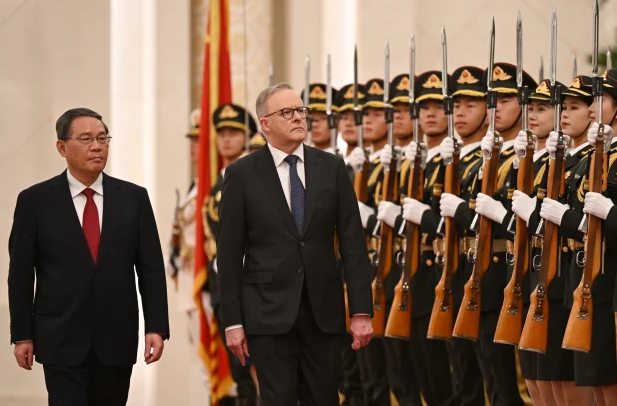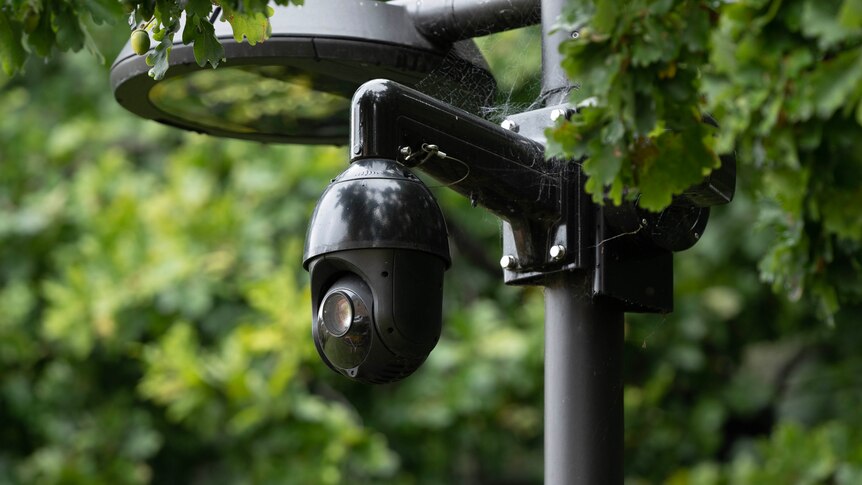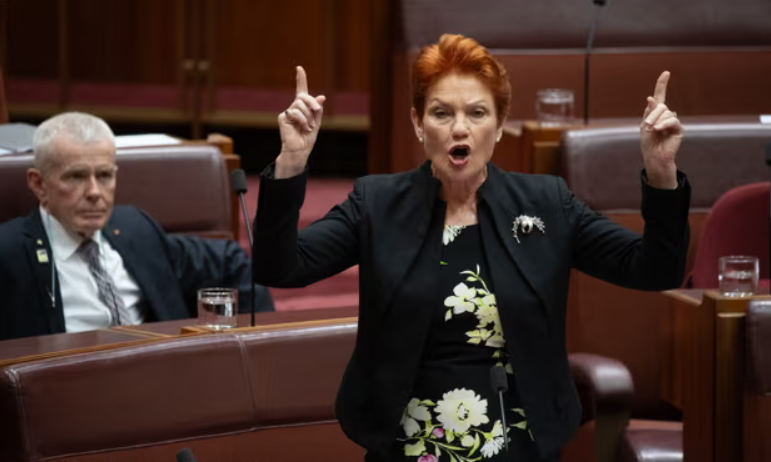
Chinese Premier Li Qiang’s anticipated visit to a lithium plant in Perth highlights China’s appetite for Australian resources and investments in the sector, while the West continues to seek ways to diminish Beijing’s strategic influence in the critical minerals necessary for the energy transition.
Lobster fishers are also hopeful Mr Li’s visit to Australia next week will herald the end of a de facto ban on exports to China and mark the finish of Beijing’s campaign of trade sanctions that targeted $20 billion of commodities at its peak.
While Prime Minister Anthony Albanese refused to confirm Mr Li would visit Australia next week, his Kiwi counterpart Christopher Luxon announced he would host Mr Li in New Zealand this week.
As the final touches are put on plans, Mr Li is expected to be in Canberra for the annual leaders’ talks with Mr Albanese on June 17, marking the first visit to Australia by a senior Chinese leader in seven years.
The premier will then travel to Perth, to highlight business and cultural ties.
The Business Council of Australia is hosting an intimate round table with Mr Li and corporate chiefs, including from Rio Tinto, Woodside, Fortescue and Wesfarmers.
Plans are understood to be well advanced for Mr Li to visit the Chinese-controlled Tianqi Lithium Energy Australia’s processing plant in Kwinana, and attend an event with a local Chinese community group.
The lithium plant visit comes as the Albanese government cracks down on Chinese foreign investment in Australian resources projects.
Treasurer Jim Chalmers last week ordered five Chinese-linked companies to divest their shares in rare earths miner Northern Minerals. The government has pledged to increase scrutiny of foreign investments in critical minerals and those that pose a security risk.
The Albanese government has also been concerned about instability in global nickel prices, amid claims China is manipulating markets.
The European Union, Japan, India and the US have been among the “like-minded” nations attempting to secure access to Australia’s supplies of critical minerals to wean themselves off relying on China.
Mr Albanese said the government would simultaneously announce Mr Li’s visit with Beijing.
“Certainly, I have said that I welcome the re-engagement that is occurring with China. It’s a good thing. We want to co-operate where we can, we’ll disagree where we must, but we’ll engage in the national interest,” Mr Albanese said.
As well as foreign investment, Mr Li may canvass Australia’s proposed caps on foreign students, while Mr Albanese has promised to raise China’s unsafe and dangerous interactions with Australian warships and aircraft in the South China Sea and East China Sea.
Since Labor’s election in 2022, Beijing has eliminated the vast bulk of punitive tariffs and bans on Australian exports that were imposed as relations nosedived in 2020.
The remaining restrictions are on beef exports from two abattoirs as well as lobster and crayfish exports, which Chinese authorities blocked on environmental grounds.
Mr Albanese and Trade Minister Don Farrell posed with West Australian lobsters at a Shanghai trade fair in November, in a sign of confidence China would soon lift the unofficial ban.
But fishers are still waiting. Western Rock Lobster Council deputy chairman Fedele Camarda, a third-generation fisherman, said the industry had not received any indications China was about to lift the ban.



